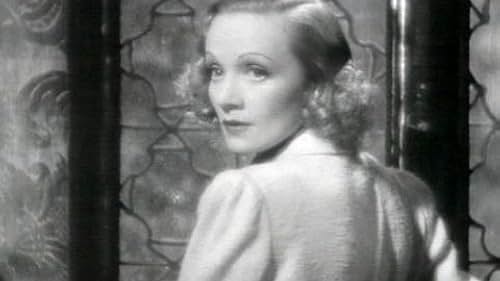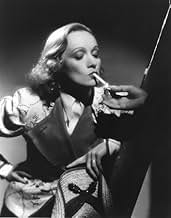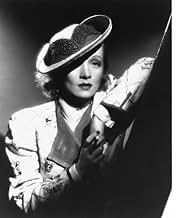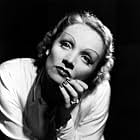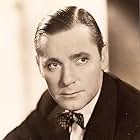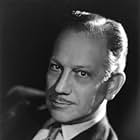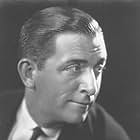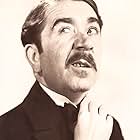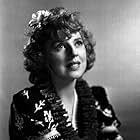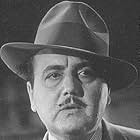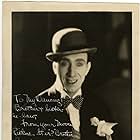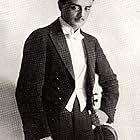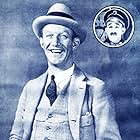IMDb RATING
7.2/10
3.4K
YOUR RATING
A woman and her husband take separate vacations, and she falls in love with another man.A woman and her husband take separate vacations, and she falls in love with another man.A woman and her husband take separate vacations, and she falls in love with another man.
Ivan Lebedeff
- Prince Vladimir Gregorovitch
- (scenes deleted)
Leonard Carey
- Barker's Footman
- (uncredited)
Louise Carter
- Flower Woman
- (uncredited)
Phyllis Coghlan
- Maria's Maid
- (uncredited)
Gino Corrado
- Assistant Hotel Manager
- (uncredited)
George Davis
- First Taxi Driver
- (uncredited)
Duci De Kerekjarto
- Violinist
- (uncredited)
Herbert Evans
- Lord Davington's Butler
- (uncredited)
James Finlayson
- Barker's Second Butler
- (uncredited)
Bobbie Hale
- News Vendor
- (uncredited)
Storyline
Did you know
- TriviaThe last film for Marlene Dietrich at Paramount under her seven-year contract with the studio. It was not renewed due to a series of recent flops for her films.
- ConnectionsFeatured in Le cinéma passe à table (2005)
- SoundtracksAngel
(1937) (uncredited)
Music by Friedrich Hollaender
Lyrics by Leo Robin
Played during the opening and end credits
Played on violin by Duci De Kerekjarto (as Duci Kerekjarto)
Played on piano by Marlene Dietrich and by Melvyn Douglas
Played as background music often
Featured review
Immediate promise of romance and flourishes of drama to flavor light humor and amusement: it's very easy to simplify 'Angel' to the most basic description - but also foolish. This is a wonderfully enchanting and entertaining picture, rich with detail in so many ways. The costume design of Travis Banton is exquisite and fetching, as well as the set design and decoration. Much credit to Charles Lang's vibrant cinematography that, in combination with fine lighting, only serves to further amplify star Marlene Dietrich's already irrepressibly radiant beauty and natural charm (as well as make every scene, generally, very pleasing to the eyes). And even these only just match the brilliant wit and intelligence of the adapted screenplay concocted between Samson Raphaelson and Frederick Lonsdale. 'Angel' distinctly declines the sort of robust comedy and absurdism that we recognize in many of director Ernst Lubitsch's other pictures, but in its stead we're treated to sharp cleverness in the craft of every word of dialogue, every character, and every scene. It's marvelously absorbing and immediately rewarding as a viewer, and just as fully engaging as any more outrageous romp or dire drama.
The very arrangement of each moment, on paper and on film, is bursting with such barely restrained anticipated tension, but is also so tremendously perfect, resonant, fluid, and organic that the picture could only be described as mellifluous in its presentation. And that quality is a fine reflection, of course, of the performances given by the cast. This goes for everyone, even Edward Everett Horton and Ernest Cossart in smaller supporting parts as Graham and Mr. Wilton, but nonetheless exhibiting outstanding and gratifying presence, poise, and delivery. Herbert Marshall and Melvyn Douglas equally command terrific nuance and precise personality as Frederick Barker and Anthony Halton respectively, splendidly calming and electrifying at the same time as the two men both build the unspoken pressure and keep it under control with their charisma. Above all, Dietrich demonstrates stupendous range tempered with fabulous, very deliberate subtlety, and is marked with an irresistible gracefulness and allure that heightens all these facets of her acting. Well and truly, every portrayal here is spotless, pristine as any comparison our imagination may conjure for the word.
The most lofty of descriptors can only do so much to begin to convey the great elegance and refined artistry of this movie. Why, I haven't even touched on the story here, though suffice to say that it handily stays in step with every other piece of praise I've proffered. I began watching with no foreknowledge save for the names involved, and perhaps I already had high expectations based certainly on Lubitsch's direction, but also Douglas and Dietrich's attachment. And still any presumptions I may have had before watching were far exceeded - this is an impeccable, striking feature, an exemplar of the sublime skillfulness and aesthetic techniques of film-making that can be applied even to more common narratives that eschew experimental or avant-garde ambitions. I have watched many lovely, captivating pictures, but can recount very few that have been so readily, completely bewitching. Viewers should know the genres the title plays with before committing to it, but otherwise I'd have a hard time believing this couldn't be enjoyed by all, nor thinking of anyone I wouldn't recommend it to. 'Angel' is a phenomenal slice of 30s cinema that stands tall with the very best of both previous years and subsequent decades, and is well worth seeking out wherever one may find it.
The very arrangement of each moment, on paper and on film, is bursting with such barely restrained anticipated tension, but is also so tremendously perfect, resonant, fluid, and organic that the picture could only be described as mellifluous in its presentation. And that quality is a fine reflection, of course, of the performances given by the cast. This goes for everyone, even Edward Everett Horton and Ernest Cossart in smaller supporting parts as Graham and Mr. Wilton, but nonetheless exhibiting outstanding and gratifying presence, poise, and delivery. Herbert Marshall and Melvyn Douglas equally command terrific nuance and precise personality as Frederick Barker and Anthony Halton respectively, splendidly calming and electrifying at the same time as the two men both build the unspoken pressure and keep it under control with their charisma. Above all, Dietrich demonstrates stupendous range tempered with fabulous, very deliberate subtlety, and is marked with an irresistible gracefulness and allure that heightens all these facets of her acting. Well and truly, every portrayal here is spotless, pristine as any comparison our imagination may conjure for the word.
The most lofty of descriptors can only do so much to begin to convey the great elegance and refined artistry of this movie. Why, I haven't even touched on the story here, though suffice to say that it handily stays in step with every other piece of praise I've proffered. I began watching with no foreknowledge save for the names involved, and perhaps I already had high expectations based certainly on Lubitsch's direction, but also Douglas and Dietrich's attachment. And still any presumptions I may have had before watching were far exceeded - this is an impeccable, striking feature, an exemplar of the sublime skillfulness and aesthetic techniques of film-making that can be applied even to more common narratives that eschew experimental or avant-garde ambitions. I have watched many lovely, captivating pictures, but can recount very few that have been so readily, completely bewitching. Viewers should know the genres the title plays with before committing to it, but otherwise I'd have a hard time believing this couldn't be enjoyed by all, nor thinking of anyone I wouldn't recommend it to. 'Angel' is a phenomenal slice of 30s cinema that stands tall with the very best of both previous years and subsequent decades, and is well worth seeking out wherever one may find it.
- I_Ailurophile
- Feb 27, 2022
- Permalink
- How long is Angel?Powered by Alexa
Details
- Runtime1 hour 31 minutes
- Color
- Aspect ratio
- 1.37 : 1
Contribute to this page
Suggest an edit or add missing content


